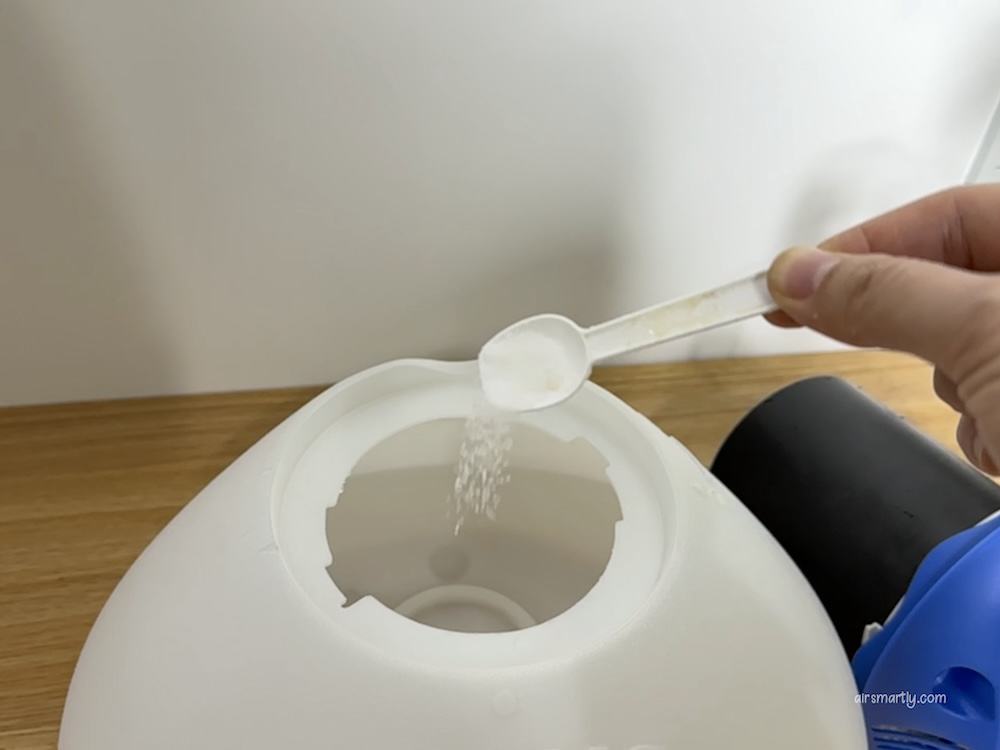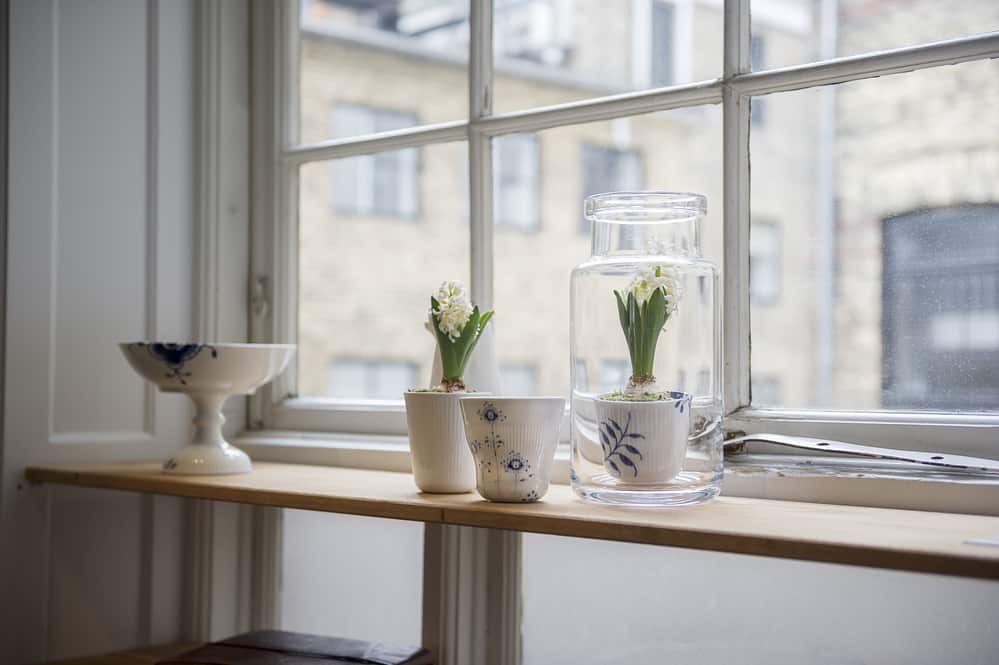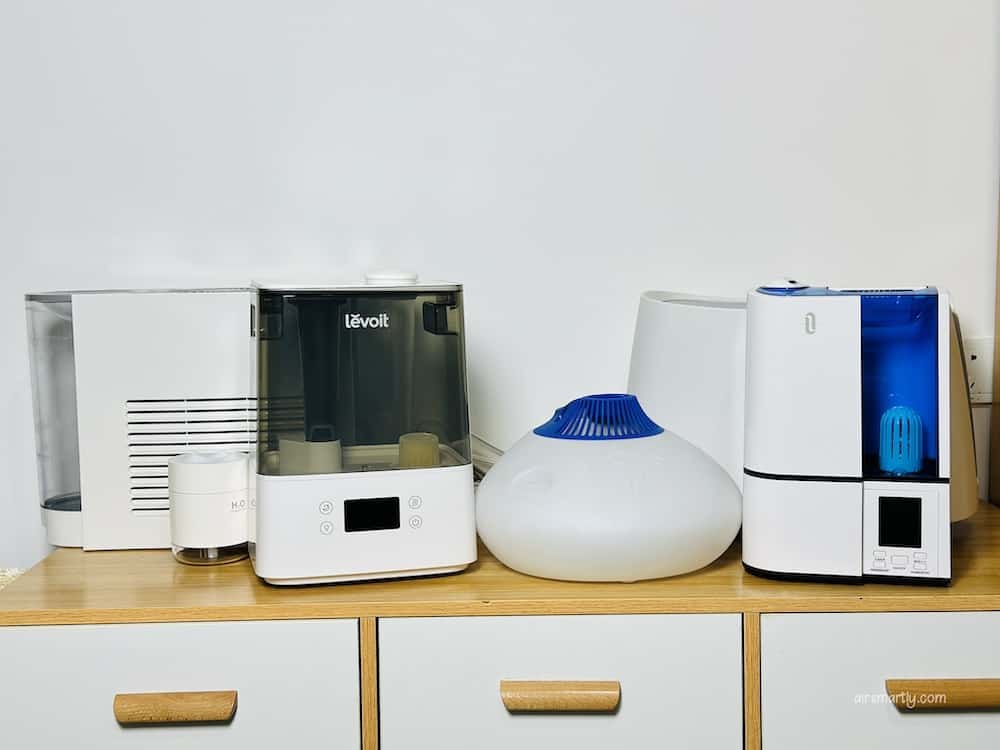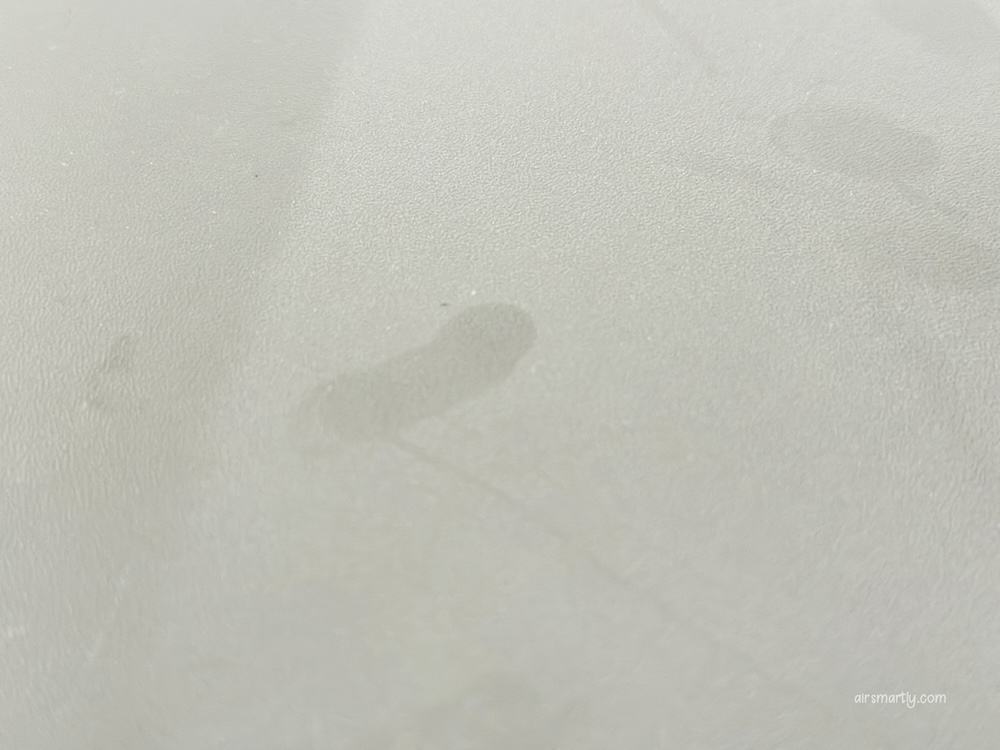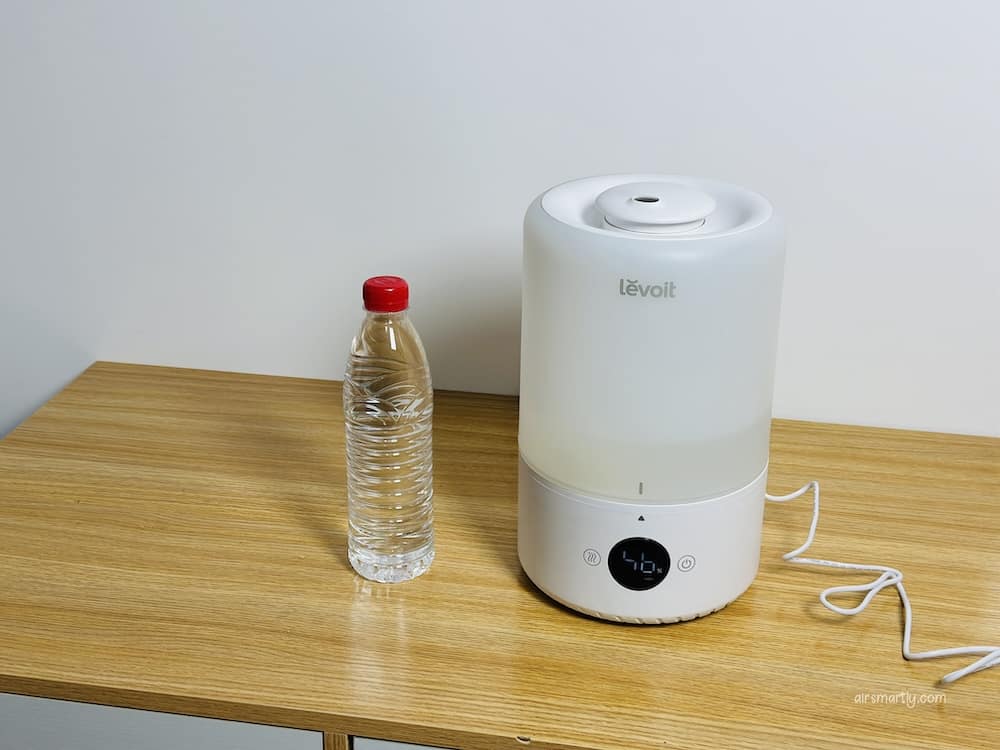Manufacturers often suggest we use distilled water and clean all the buildups out every so often. It is rarely heard that you should add something into a humidifier. But there is one exception: you will need to put salt in a humidifier under certain circumstances.
While it seems to be odd, it is a regular operation when using a specific type of humidifier. So why should you put salt in a humidifier, and how to do it? You will find the answer you need in this post.
Without further ado, let’s dive into it.
Why should you put salt in a humidifier?
Many humidifiers will heat the water and then evaporate the steam to humidify the air. We often call them warm steam humidifiers, or vaporizers.
Among these warm steam humidifiers, some will heat the water through carbon electrodes connected to the electricity supply. Distilled water is not very conductive, and the current flowing between electrodes is small, making it hard to provide heat for water.
For instance, the first time I used my Vicks vaporizer, there was no steam even after 20 minutes, which initially made me think it was broken.
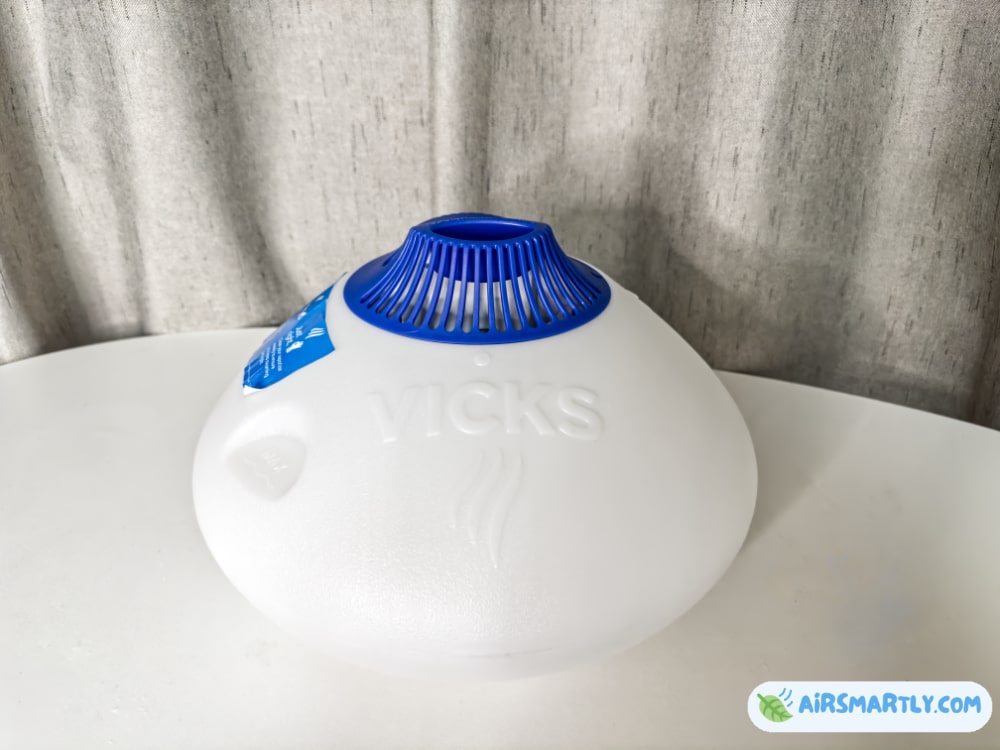
By adding some salt to the water, the conductivity will be improved by letting water molecules move freely. Accordingly, more heat will be available to boil the water, and more steam will come out from the humidifier. Aside from that, the boiling point will rise a bit.
Other impurities also work. You can add baking soda as well. However, if you are using “hard water” in your humidifier, you may not need to add anything. It is conductive enough to heat the water already.
Don’t put salt in a cool-mist humidifier
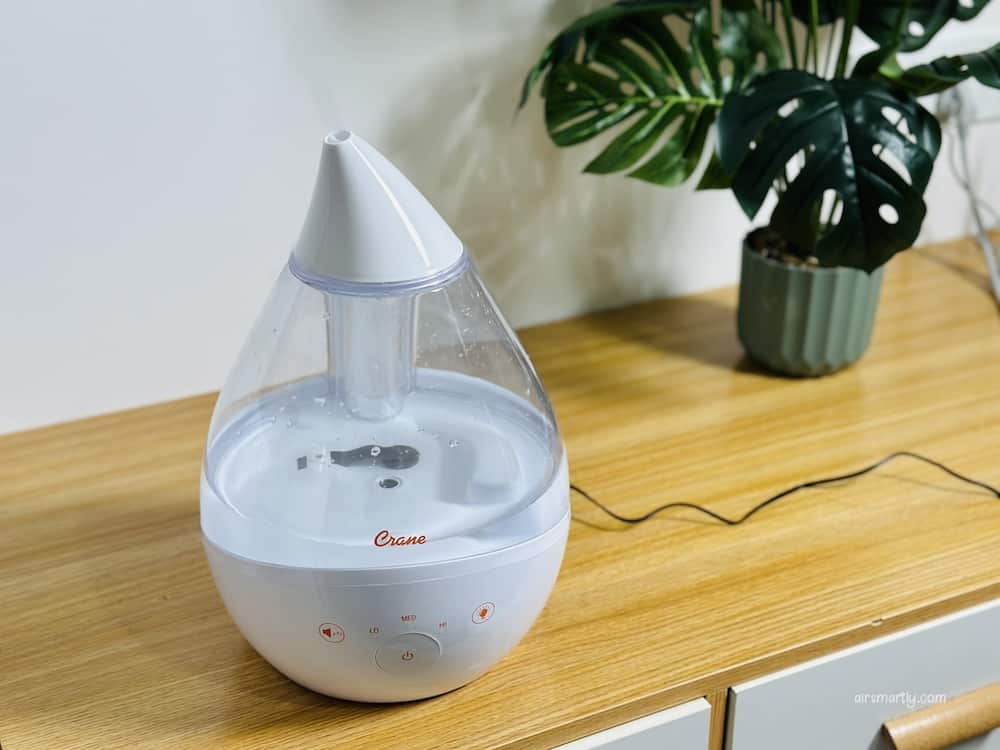
As I said, the aim of putting salt in a humidifier is to increase the conductivity of water. However, it is useless for a cool-mist humidifier since it doesn’t heat the water at all.
Cool-mist humidifiers use either a fan to evaporate the water or ultrasonic vibration plates to break down water into tiny droplets. The whole process doesn’t need to make use of any heat.
In addition, the salt will become a part of the buildup at the end, which would clog the humidifier gradually. It also could become a breeding ground for molds and bacteria, which could pose risks to your health.
Therefore, stick to distilled water and clean it regularly if you have a cool-mist humidifier.
How to add salt to a humidifier?
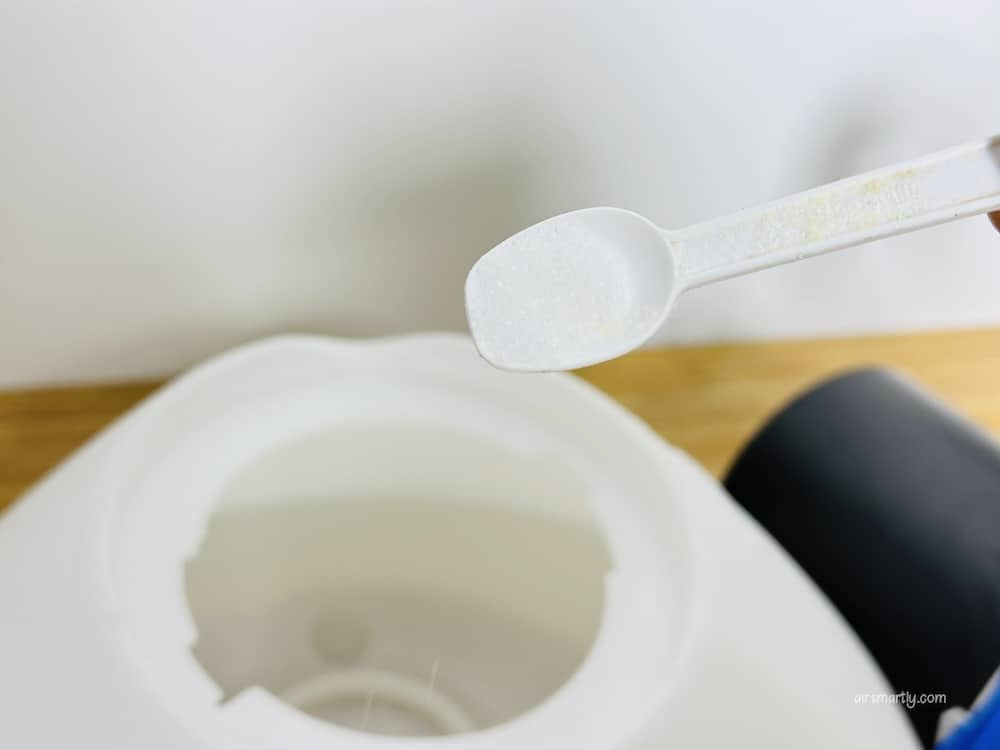
Putting salt in a humidifier is just like a walk in the park. Just follow the steps in this section, and you are all set.
1. Turn off the appliance and unplug it. It is better to be safe than sorry.
2. Take out the steam part, which is often located on the top.
3. Fill the tank with cool water without exceeding the mark. Otherwise, water may spit out constantly.
4. Add a certain amount of salt into the tank and stir it until completely dissolved.
5. Put the steam part back.
6. Plugin and test if the vapor is sufficient.
How much salt do you put in a humidifier?
Usually, manufacturers will recommend how much salt you should add. The best bet is to check the manual.
I advise you to test it before adding any salt because tap water in some areas contains sufficient impurities for a vaporizer to work.
When you decide to add salt, start by adding a pinch. If the humidifier can’t produce enough steam, you can add another pinch.
Please don’t overdo it, as it is possible to damage the metal components and accumulate buildup quickly.
How much salt do you add to a Vicks humidifier?
Many people choose to buy a Vicks vaporizer when they need a warm steam humidifier. When putting salt in soft water, you should add 1 to 2 pinches (1/8 teaspoon) of regular table salt.
For those who don’t produce vapor after 10 minutes, you can add another pinch into it.
Which type of salt can you use in a humidifier, Epsom or Himalayan?
The regular table salt is perfectly fine to put in a humidifier. As you only add a bit into it, other components of table salt would not affect you much.
You can also add Epsom salt or Himalayan salt to your humidifier. While they are known for benefiting skin, muscle, and overall health, I don’t think it would make any difference in that most of them would not evaporate in the air.
Adding salt is different from adding essential oils. Instead, they will stay in the water tank just like other minerals.
How often should you add salt to a humidifier?
You can add salt whenever you feel the vapor is not sufficient. Be careful and don’t let the hot water scald you.
It is recommended to clean the vaporizer once a week. Even though the heating process may kill the molds and bacteria, the contaminants in the water reservoir could shorten the device’s lifespan and cause dysfunction.
After cleaning, the remaining salt has been washed away. Therefore, you should add salt to it again.
Conclusion
Not every type of humidifier needs salt. You should only put salt in a humidifier that utilizes carbon electrodes to make steam. Adding salt to a cool-mist humidifier may even cause adverse effects.
When adding salt to a humidifier, the salt will increase the conductivity of water and make the humidifier easier to produce vapor.
You can use the regular table salt or the luxury Epsom salt in a humidifier. There is no significant difference between each other because the salt will stay in the tank.
Don’t add too much salt. In many cases, a pinch of salt can help to produce sufficient steam. Besides, you will need to add again after each cleaning.

